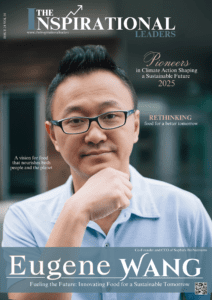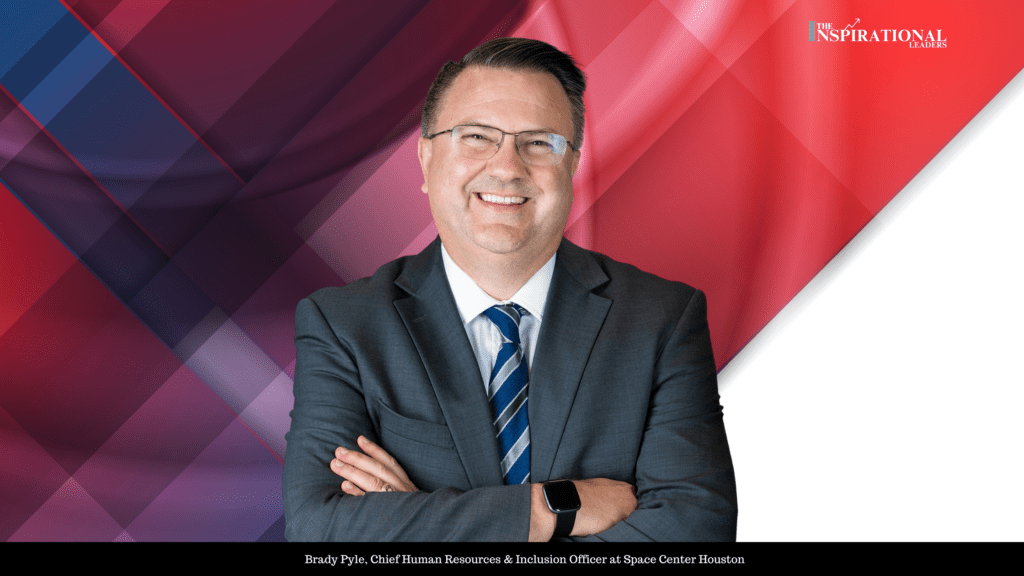Pioneering Climate Action Through Sustainable Food Innovation: The Journey of Eugene Wang and Sophie's BioNutrients
With climate change and food security now considered pressing global threats, Eugene Wang stands out as a pioneer in the sustainable food industry. He is Co-Founder and CEO of Sophie’s BioNutrients and has spent his entire career searching for solutions to the pressing issues of food sustainability, environmental impact, and nutrition. His journey into the world of food innovation came from a painful family experience that motivated him to set the course toward a revolution of plant-based proteins from microalgae.
Improving the current food systems will only bring incremental small improvements, which will not be sufficient to solve the real challenges. Instead, we must drive radical innovation to build a truly sustainable future.
An Inspiration from Inside Inspiring an Effort Outside
The fire of food innovation was born in him when his daughter Sophie developed allergic reactions to shellfish. Eager to find an alternative, in 2010, starting with a world first-a plant-based seafood company called Sophie’s Kitchen. This business venture allowed him to pry deeper into food technology, ultimately steering him towards the potential of microalgae as a sustainable protein source. In 2017, Wang co-launched Sophie’s BioNutrients in Singapore, focusing on innovative development on a new plant-based protein derived from microalgae.
Microalgae can thus provide a paradigm shift in protein alternatives, as they are nutrient-rich and climate-resilient. To that end, Sophie’s BioNutrients uses an innovative strain of microalgae, which grows exclusively in fermentation containers, consumes industrial food waste as feedstock, and can be harvested in three days. Containing over 60 percent in protein and possessing superior essential amino acid building blocks that are above the World Health Organization (WHO) standards, this innovation can reshape the future of food production.
To Reduce Food Production’s Environmental Footprint
People have consumed animal afro protein, soy, and protein from different sources that usually take a lot of land, water, and energy to be produced. The microalgae-based protein technology developed by Sophie’s BioNutrients makes such use significantly unsustainable, thus paving the way for food production that conserves its environment. Wang outlined various features that are environmentally favorable:
- Very low land uses make deforestation unnecessary
- Over 90 percent of the water used in production is recyclable
- Short production cycles of 3 to 10 days compared to soy (45 to 65 days) and beef (over 18 months)
- Production systems friendly to urban areas provide reductions in transportation emissions
- No use of fertilizers, herbicides, antibiotics, or growth hormones
All these aspects contribute to a more resilient and ecological nature of food systems that enable microalgae to play a major role in combating agriculture’s impact on climate change.
With all nine essential amino acids, multiple B vitamins, iron, and dietary fibers, our microalgae protein is not only plant-based and sustainable but also allergen-free.
Innovative Solutions for a Sustainable Future
The heart of Sophie’s BioNutrients is to bring change for food systems: climate-conscious. Wang thinks a time when food production becomes urbanized to reduce the pressure of traditional agriculture and therefore helps to lower carbon footings with food transport.
By means of fermentation technology, Sophie’s BioNutrients greatly minimises large-scale land usage to save forests from being cut and to prevent further anthropogenic-induced greenhouse gas emissions. The life cycle assessments directed within the company for an environmental footprint assessment continue with such innovations as they align with a larger perspective: a circular economy system in food production.
Meeting the Immediate Climate Woes of the Food Sector
These climate-related concerns include deforestation, high dependence on chemicals, and unsustainable supply chains, combine to create a leading-edge set of problems for the global food industry. Wang stresses the need for bold and innovative solutions in addressing these challenges rather than mild enhancements of existing systems. As he puts it, “the present agricultural model is no longer sustainable” and “unless companies develop some radical new methodologies, real change will become impossible”.
“Improvements in the present food systems would be so small, and would not be able to address the real issues at stake. Instead, we must promote radical new systems, just like the one we are working on, to be able to actually address those issues.”
A Tenuous Balance Between Profit and Climate Responsibility
Sustainability efforts in the food industry usually require a balancing act to perform between environmental propriety and economic viability. Sophie’s BioNutrients has engineered fermentation technology with efficiency and scalability. By limiting space and resources devoted to food production, the company lessens overall environmental impact while remaining profitable within a larger time frame. As the company grows, it expects increased efficiency in production, thereby allowing it to achieve its ambitious project of waste zero and carbon-negative company.
Importance of Collaboration in Halting Progress Towards Sustainable Food Solutions
With meaningful climate action requires collaboration among governments, research institutions, and industry leaders. They have engaged in partnerships to promote sustainable solutions. A notable example of this cooperation is represented by the ongoing microalgae fermentation experiments by the company in collaboration with the European Space Agency (ESA) aboard the International Space Station (ISS).
Funded through ESA by the DLR, this groundbreaking project aims to study the impacts of gravity on the growth of microalgae. The project combines contributions from Yuri GmbH, Danish Technological Institute, SpaceX, and NASA and has become a shining example of just how much collaboration across industries is integral in bringing global issues to heal.
Regulatory Barriers: Call for Government Reform
Despite food innovations being marked by climate-consciousness, regulatory structures take a while to catch up on the specifics. Wang asserts that because of extremely tight regulations around food, especially in Western Europe, it can stifle growth in sustainable food startups. He sits in the middle; he wants governments to regulate carefully without choking innovative strides. He emphasized that if the regulatory burden on novel food technologies were to be lessened, companies would then focus on consumer engagement and product development.
By shrinking the space footprint and resources needed in our technology, we can greatly minimize our environmental impact while increasing efficiency.
Changing Consumer Behavior and Market Adoption
Consumer demand is one of the vital ways that lead the path for climate-conscious food choices. But one major hurdle, according to Wang, is that too many consumers are unwilling to pay a premium for sustainable foods. To that end, Sophie’s BioNutrients is creating microalgae-based products that are sustainable and nutritionally superior.
“With all nine essential amino acids, multiple B vitamins, iron, and dietary fibers, our microalgae protein is singularly plant-based, sustainable, and free from allergens. Consumers pay premium prices for nutritious food, and that is our strategy.”
The firm was able to set the tone for sustainable health by linking it with consumer expectations and innovation in food that is climate-conscious.
Looking forward to generating climate action in 2025 and beyond
According to Wang, raising awareness about climate change is still rather important as we get closer to 2025. He notes the increased skepticism on the part of some consumers, plus the political narrative plays a role to either downplay or limit urgency for climate action. He remains optimistic about the future of sustainable food technologies, notwithstanding.
Collaborative Action to Transform Our Future
Wang urges global leaders, entrepreneurs, and consumers to bondedly look for solutions to the crisis of climate change. The worrying trend of self-isolation and division must be resisted; the climate challenge calls for a collective and international response.
“For an issue as big as the climate crisis, we need all hands on deck. This is not something that can be addressed by any single country, continent, or even an alliance. We only have one Earth. Anything we do in one part of our planet, that same thing is going to have repercussions elsewhere. There should be global collaboration for a sustainable and resilient future.”
Collaboration is key in everything we do. Climate action requires partnerships across industries, research, and government.
With commitment to the ideals of innovation, sustainability, and collaboration, Eugene Wang and Sophie BioNutrients have led the charge of transforming the food industry block by block. They, through microalgae-based protein solutions, are building a more resistant and climate-friendly future for generations to come.




